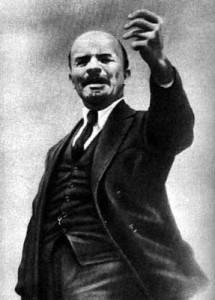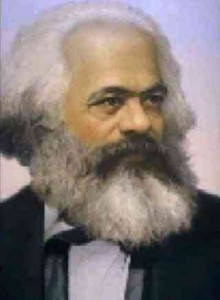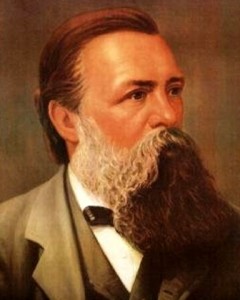Birds of a feather
At a rally outside the Supreme Court, Sen. Bernie Sanders (I-VT) took on the Koch brothers and said, “Freedom of speech does not equal freedom to buy the United States government.â€
Video:
Sen. Sanders said,
In the long history of our country people have fought and died for democracy. Democracy means one person, one vote. The fact that all of us have the opportunity to be involved in the political process to stand up for what we believe in. Three years ago, or so the Supreme Court decided that corporations are people. They decided that through independent expenditures billionaires could spend unlimited sums of money to impact elections.
Let me say one word to you right now about how relevant that is. As all of you know, the government of the United States shut down. Hundreds of thousands of workers are suffering, millions of people are not getting the services they need. Right now, as we speak, in the House of Representatives there are people who are being threatened that if they vote for a clean CR to open the government without destroying the Affordable Care Act then huge sums of money will be spent against them in the next election.
We are living in a society where a handful of people with incredible sums of money, folks like the Koch brothers and others, are undermining what this democracy is supposed to be about. The bottom line here is that if we do not want to move this nation to an oligarchic form of society where a handful of billionaires can determine the outcome of these elections, then it is imperative not only that we overturn Citizens United, but that we put a lid on how much people can contribute in elections.
Freedom of speech, in my view, does not mean the freedom to buy the United States government
Sen. Sanders was present at the Supreme Court to hear oral arguments in the case of McCutcheon vs. FEC. The Supreme Court will deciding the fate of the caps that limit how much donors can give to candidates and political organizations during a two year election cycle later in this term.
If the Supreme Court rules the caps unconstitutional, it will allow conservative billionaires to spend even more money in their attempt to execute a hostile takeover of the United States government.
The case is so dangerous to our democracy that President Obama weighed in on it today. The president called for spending limits in our elections, and spoke about the role that the conservative billionaires have played in shutting down the government.
Sen. Sanders is fighting the good fight, and if Americans want to know why the government is shutdown, all they have to is follow the money. Government shutdowns are bad, defaults are worse, but these tactics are nothing compared to the damage that the current Supreme Court is doing to our democracy.
Karl Marx writes in the sixth paragraph of the Preface to A Contribution to the Critique of Political Economy (1859):
“In the social production of their existence, men inevitably enter into definite relations, which are independent of their will, namely relations of production appropriate to a given stage in the development of their material forces of production. The totality of these relations of production constitutes the economic structure of society, the real foundation, on which arises a legal and political superstructure and to which correspond definite forms of social consciousness. The mode of production of material life conditions the general process of social, political and intellectual life. It is not the consciousness of men that determines their existence, but their social existence that determines their consciousness. At a certain stage of development, the material productive forces of society come into conflict with the existing relations of production or – this merely expresses the same thing in legal terms – with the property relations within the framework of which they have operated hitherto. From forms of development of the productive forces these relations turn into their fetters. Then begins an era of social revolution. The changes in the economic foundation lead sooner or later to the transformation of the whole immense superstructure.â€
Marx teaches us that “The mode of production of material life conditions the general process of social, political and intellectual life.”
In a previous post on this website “Frederick Engels on Bukunin’s School of Anarchy”, A. Shaw notes that Engels made the case that Anarchists view the state as the ultimate evil and routinely abstain from the political struggle in any meaningful way. In short, Anarchists have a phobia of political struggle. They are extremely successful in persuading people on the left, people of conscience and progressives generally from participating fully in the political struggle in the United States. This is easily confirmed by the pathetic numbers of people who vote.
According to Time magazine, the 2014 midterm elections voter turnout reached a 72 year low and only 36.4% of eligible voters actually voted. Researchers Martin Gilens and Benjamin I. Page maintained that the US political system has transformed from a democracy into an oligarchy where wealthy elites control most political power. The researchers maintain
“The central point that emerges from our research is that economic elites and organized groups representing business interests have substantial independent impacts on U.S. government policy,” they write, “while mass-based interest groups and average citizens have little or no independent influence.”
If this is true, then it is obvious that those people who control the means of production in the United States control the political process as well. The people who control the means of production in the United States, obviously, are the capitalist class, commonly referred to as the 1%.
Marx taught us and examination of the current mode of production easily reveals that market economies are anarchistic in form and content. In other words, market economies are ideologically anarchistic.
Dictionary definitions of anarchism include components such as “rejection of authority” and “absence of government and absolute freedom of the individual, regarded as a political ideal.” Synonyms of anarchy include “lawlessness, nihilism, disorder, chaos, mayhem, tumult, turmoil.†It should be pointed out that nihilism, particularly that form of nihilism expressed by Friedrich Nietzsche, was the dominant ideology of Nazi Germany.
Few would argue that there is no worship of the “absolute freedom of the individual” in the US today.
Few would argue that the distribution of wealth in the USA is not uneven and that the market economy of the US is not chaotic.
An examination of current social relations in the USA reveals absolute anarchy in social, intellectual and political life. Mainstream media conceals the reality of the conduct of the US government every day. Low voter turnout hands elections over to the 1% without a fight. Movies, video games and the Internet have produced a culture based on violence and chaos never before seen in the history of mankind.
Lawlessness, including police terrorism, is rampant across the nation.
The US military violates international law and terrorizes working people around the globe.
Economic warfare waged by the US ruling class creates chaos, anarchy, terror and psychological dysfunction domestically and internationally.
Bizarre behavior among humans in the USA has become the new norm. All of this is a reflection of the chaos and anarchy of the mode of production, i.e. the market economy.
In his “Letters on Tactics”, Lenin defined revolution as the passing of state power from one class to another.
People on the left in the United States give a lot of lip service to “revolution.” However, all too often people on the left equate revolution with anarchy. They don’t seem to have a clue about how to acquire state power. Of course, by playing into the hands of the anarchists, people on the left play into the hands of the capitalists.
Anarchists, because of their phobia of political struggle, routinely abstain from meaningful political activity. Abstention from political activity is abstention from the struggle to acquire state power. Abstention from political activity is therefore abstention from revolution. Abstention from revolution means a free ride for the 1%. Anarchy is therefore antithetical to revolutionary struggle.
People in the US have a choice in front of them. They can continue to worship individualism and anarchy and abdicate their political power to the 1% or they can unite, organize and fight for the interests of working people which include accessible education, healthcare, housing, legal justice and freedom from oppression, exploitation and racism in all its forms. So, working people must choose between anarchy or revolution.
Today, in 2015, there must be at least 5000 brands of anarchism. Some of these brands attack the proletariat from the Left and others from Right. Leftwing anarchism was the first ideological current that substituted intrigue, splitting of sects, and rampant sectarianism for political struggle.
Leftwing anarchism abstains from political struggle, but wallows in sectarianism.
Now, 120 years after Engels’ death, Bakunin’s brand of anarchism, with certain minor modifications, still exemplifies leftwing anarchism.
THE MAIN EVIL
“As for Bakunin, the state is the main evil, nothing must be done which can maintain the existence of any state, whether it be a republic, a monarchy or whatever it may be,” Engels writes in a Jan.1872 letter to Theodor Cuno.
To anarchism, the form of the state — that is, “a republic, a monarchy or whatever it may be” — does not alter the evil character of the state. Moreover, to anarchism, the content of the state — that is, whether it be a slaveholding state, a feudalist state, bourgeois state, or proletarian state — does not alter the evil character of the state.
The state is evil, the anarchist insists. Case closed.
The regime in the USA has a democratic form, and bourgeois content. The regime in Saudi Arabia has monarchical form and bourgeois content. The government of North Korea has monarchical form and proletarian content. The government of Cuba has democratic form [based on multi-candidate elections — not multi-party elections – at the municipal level] and a proletarian content.
Form reveals HOW state power is exercised and is often laid out in the constitution of the state.
Content tells us WHO or what social class chiefly exercises state power and for whom is power chiefly exercised.
The anarchist condemns the state as the “main evil” whatever its form and content, so nothing must be done to maintain or defend the existence of any state.
Anarchism and Marxism agree that the state is the organized power of one class for oppressing or holding down another, as Marx and Engels argue in the Communist Manifesto.
In others words, the principle function of a state, regardless of form, is oppression. Again, this is common ground between Marxism and anarchism.
In ancient Greece, the so-called master class oppressed the class of slaves, using the slaveholding state as an instrument of oppression whether the regime’s form was democratic or undemocratic. During the feudalist era, the landowners oppressed peasants, using the feudalist state. In bourgeois society, the capitalist class oppresses or holds down the working class, using the bourgeois state, no matter how democratic is the form of the state. In a socialist society, the working class uses the proletarian state, which may be either democratic or undemocratic to hold down the bourgeoisie ousted from power by revolution.
Of course, communism, which follows socialism by hundreds of years, gradually makes the state superfluous. Classes based on relations to the means of production and income disparities begin to die out. The state, which oppresses classes, withers away as these classes fade away.
COMPLETE ABSTENTION
Engels writes “Hence therefore complete abstention from all politics. To perpetrate a political action, and especially to take part in an election, would be a betrayal of principle …Â To preach that the workers should in all circumstances abstain from politics is to drive them into the arms of the priests or the bourgeois republicans.”
The principle, above, to which Engels refers is the anarchist principle of political abstention. This is the benchmark principle of anarchism.
In the mid-term U.S. elections of 2014, the abstention of the working and middle classes reached astounding proportions and bourgeois reactionaries grew more powerful in the bourgeois state which oppresses other classes.
Engels calls the Left anarchist a swindler when the Left anarchist urges workers to drop out of the political struggle.
Engels says something like you can fool workers sometimes but not all of the time, here “But the mass of the workers will never allow themselves to be persuaded that the public affairs of their country are not also their own affairs; they are by nature political and whoever tries to make out to them that they should leave politics alone will in the end get left in the lurch.”
If anarchist identity is determined by political inactivity rather than anarchist consciousness and theory, then anarchism may be the largest tendency within the U.S. working class.
THE MECHANICS OF THE ANARCHIST SWINDLE
Let’s assume a race between candidate A and candidate B for some office.
Let’s further assume you support candidate A.
There are two ways you can help candidate A:
(1) give support directly to candidate A or
(2) block support going to candidate B
No. (1) — that is, give support directly to candidate AÂ — is the politics of participation
No. (2) — that is, block support going to candidate BÂ –Â is the politics of abstention
Let’s assume you argue that you are evenhanded between candidate A and B because you urge voters and operatives not to support either candidate.
Say a constituency votes 90% for a candidate like B [e.g., like in some African American districts] and 10% for a candidate like A.
If the leftwing anarchist persuades voters and volunteers to abstain, candidate B will suffer a blow nine times harder than his opponent.
That is not evenhanded. That is two-faced.
HEAP ABUSE UPONÂ THE STATE
What does the anarchist do while he abstains from politics?
“The thing to do is to conduct propaganda, heap abuse upon the state, organize until all workers are won over …,” Engels says about the anarchist.
In other words, the anarchist talks as he waits.
When it comes to conducting propaganda against the state, many anarchists are phenomenal. Many of them have a knack.
When either the ruling bourgeoisie [e.g., USA] or the ruling proletariat [e.g., Cuba] exercises state power in the wrong way, anarchists have a knack of finding out what happened and making propaganda about the transgression.
A presupposition of anarchist propaganda is: If there were no state, then state power could not be exercised in the wrong way.
AUTHORITY
According to Engels, anarchist society will not tolerate authority.
“In this society there will above all be no authority, for authority = state = an absolute evil. (How these people propose to run a factory, work a railway or steer a ship without having in the last resort one deciding will, without a unified direction, they do not indeed tell us.) The authority of the majority over the minority also ceases. Every individual and every community is autonomous, but as to how a society, even of only two people, is possible unless each gives up some of his autonomy, Bakunin again remains silent,” Engels writes.
Apparently, anarchists believe the state is the main evil or the absolute evil because the state has more authority than other institutions.
So, “every individual and every community is autonomous.” This proposition has generated thousands of intrigues, splits, and savage sectarianism within the anarchist movement.
“Every individual … is autonomous.” is a favorite proposition of rightwing anarchism.
“Even if this authority is voluntarily bestowed it must cease simply because it is authority,” Engels observes
CONCLUSIONS
Anarchists want to abolish the state today. Marxists are willing to wait hundreds of years for the state to wither away.
Both anarchists and Marxists believe the state, even in a democratic form, is an instrument by which one class oppresses another.
Anarchists want to abstain from the struggle for power. Marxists struggle for power.
Anarchists say nasty things about the ruling class whether it is bourgeois or proletariat. Marxists truthfully defend the proletarian state.
Anarchists are intolerant of authority. Marxists greatly uses authority, especially during socialism, the stage of development between capitalism and communism.
“Here you have in brief the main points of the swindle,” Engel writes.
By swindle, Engels means anarchism.
SECTION 1. Whereas the right to vote in public elections belongs only to natural persons as citizens of the United States, so shall the ability to make contributions and expenditures to influence the outcome of public elections belong only to natural persons in accordance with this Article.SECTION 2. Nothing in this Constitution shall be construed to restrict the power of Congress and the States to protect the integrity and fairness of the electoral process, limit the corrupting influence of private wealth in public elections, and guarantee the dependence of elected officials on the people alone by taking actions which may include the establishment of systems of public financing for elections, the imposition of requirements to ensure the disclosure of contributions and expenditures made to influence the outcome of a public election by candidates, individuals, and associations of individuals, and the imposition of content neutra limitations on all such contributions and expenditures. SECTION 3. Nothing in this Article shall be construed to alter the freedom of the press.













